Labor looks to the right to frustrate the Coalition
With little difference between Labor and the Coalition on China, AUKUS, Israel and other foreign policy issues, it’s to portray the opposition as reckless or weak on national security.
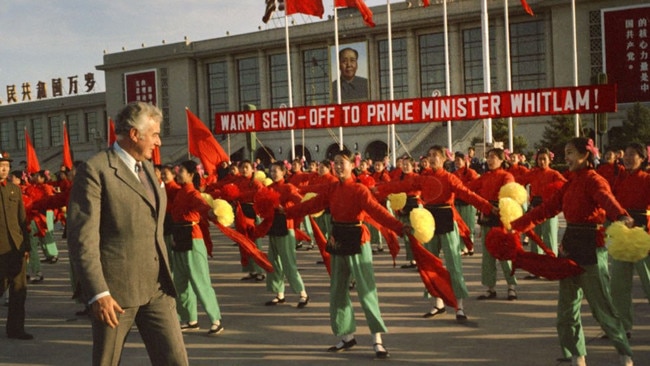
The motivation for this campaign was made clear in this week’s Newspoll, where one of the few glimmers of good news for Scott Morrison was in his handling of China.
On the question of who was best to “deal with the threat of China in the Asia-Pacific”, the Prime Minister led Labor leader Anthony Albanese by 31 per cent to 26 per cent – a better outcome than he got against Albanese on the pandemic or the economy.
China is on the nose with many voters, with the Lowy Institute’s annual poll showing that for the first time more Australians view China as a security threat than an economic partner, despite the country remaining Australia’s biggest trading partner.
Australia-China relations remain in the deep freeze with no high-level meetings and no obvious end in sight to Chinese-imposed trade sanctions on some $20bn worth of Australian exports in response to a range of perceived insults from foreign interference laws to the Huawei ban to the probe on the origins of the Covid-19 pandemic in Wuhan.
So it was no surprise to see the Newspoll coincide with a co-ordinated attack on Labor’s China policy, with four senior government ministers – Josh Frydenberg, Dan Tehan, Barnaby Joyce and David Littleproud – all accusing Albanese of lacking the “ticker” to stand up to Beijing.
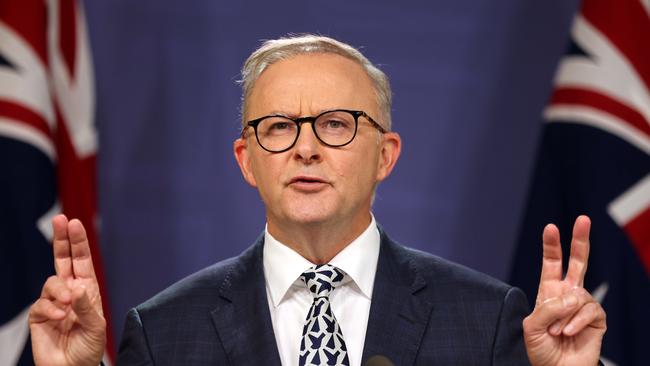
However, this initial attack fell flat in part because it involved a tortured interpretation of what Albanese actually said. But of greater concern for the government was that this opening election salvo only served to highlight how similar Labor’s China policy is to that of the government, and therefore how difficult it will be for the Coalition to make China a clear vote-winner in this campaign.
Albanese was criticised for saying – in response to an olive branch from new Chinese ambassador Xiao Qian – that “China should certainly withdraw some of the actions that have been taken to stop Australian products going to China”.
Coalition ministers jumped on the use of the word “some”, implying that Albanese was not advocating the removal of all Chinese sanctions against Australia and was therefore “selectively sacrificing” certain industries.
But in the same press conference, Albanese made it clear that he was referring to all sanctions when he said he hoped China “would support the withdrawal of those effective sanctions which are in place whether it be for our natural resources or our products such as wine and agricultural products as well”.
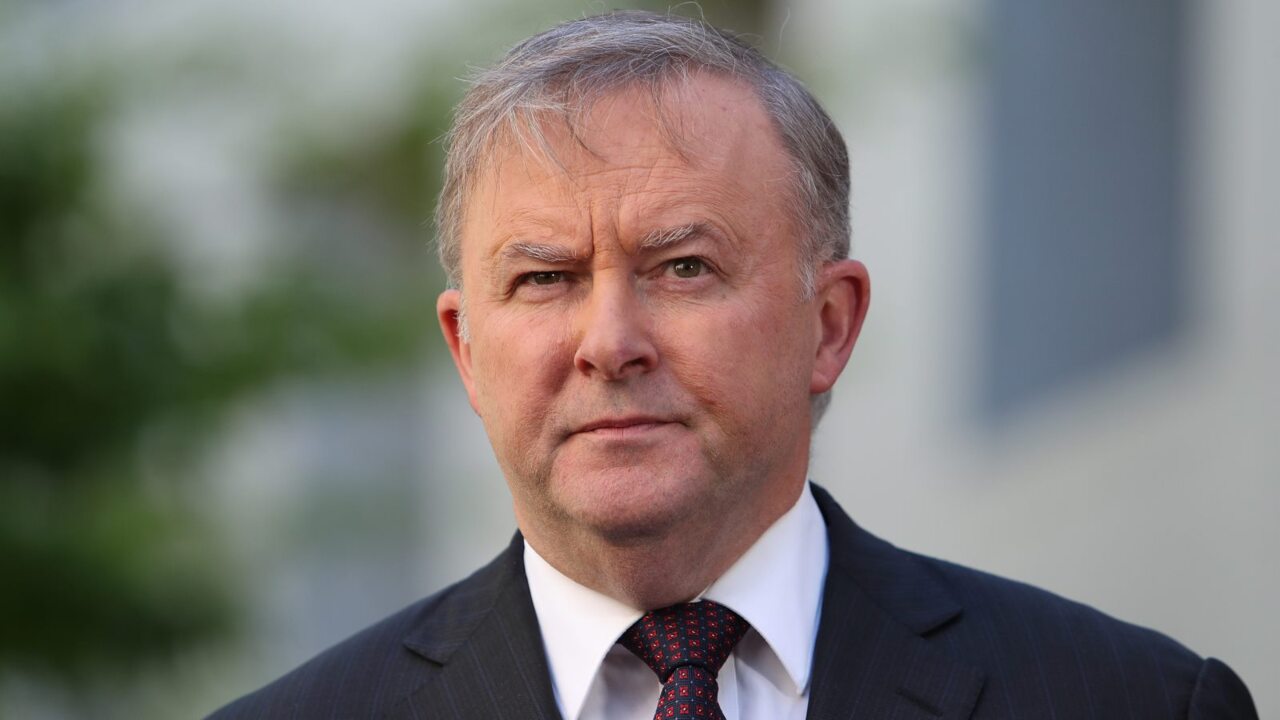
Albanese argues that Labor’s policy towards China is all but identical to that of the government – not stronger or weaker, but entirely consistent. He wants to neutralise China as an election issue, telling the National Press Club recently: “I don’t blame the government, and never have, for the current circumstances.
“Whoever is in government, it will be a difficult relationship. It will be difficult because the posture of China has changed. It is China that has changed, not Australia that has changed. And that needs to be acknowledged and we need to adjust accordingly.
“China is more forward leaning in the region. And that requires an adjustment in our approach,” Albanese said.
“One of the things that I would hope for, though, is that you can have an Australian policy that would be exactly the same on the Uighurs, on Hong Kong, on Taiwan, on the South China Sea, on human rights, but still have an economic relationship that the Howard government had and that is important in the region,” the Opposition Leader added.
The rhetoric on China between the major parties does differ at times. For example, Labor refuted Defence Minister Peter Dutton’s claim it would be “inconceivable” that Australia would not join the US to defend Taiwan if China invaded. Policy can also differ at the margins. For example, Labor accuses the government of not giving enough aid to Pacific Island nations to combat the growing influence on Beijing. But as the election looms, even foreign policy experts are struggling to identify any substantive differences between Labor and the government on China policy.
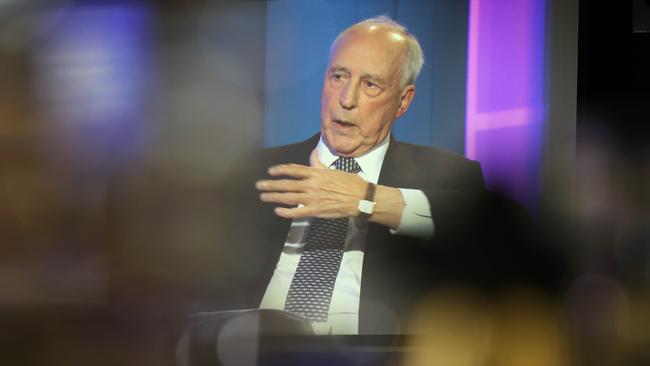
“I don’t think there are any meaningful differences between Labor and the Coalition on China,” Allan Gyngell, a former diplomat and former head of the Office of National Assessments, tells Inquirer. “On issues like foreign interference, like support for the Quad or the importance of the American presence in Asia I think you would be very hard-pressed to see a difference.”
“Any difference in China policy between the parties is more rhetorical than substantive,” says John Blaxland, professor of international security and intelligence studies at ANU. “The Labor Party is making sure there is no light between them and the Coalition on a range of security issues because they know the Coalition wants to make this an election issue over which they can wedge the Labor Party and (accuse them of being) soft on China.”
Even China seems to see little difference between Labor and the Coalition. The Chinese government-owned Global Times wrote after Albanese’s recent press club address that “Albanese’s assertions about China are obviously repetitions of the platitudes of the anti-China forces. Under heavy pressure from the US and some Western countries, including the anti-China elements in Australia, both the current ruling Liberal Party of Australia and the Australian Labor Party hold similar stances toward China. They both replicate the cliches of ‘blaming China’ to identify with Washington’s strategy.”
But is Labor’s willingness to mirror the government’s hard line on China a short-term election strategy or does it signal a more profound transformation within the party that first forged relations with Beijing in the 1970s?
“Labor has certainly moved on China, but so has everyone,” says Gyngell. “There has been movement across the board and attitudes in Labor have reflected that shift.”
The government has sought to exploit comments in November by Labor elder Paul Keating, who sharply criticised Australia’s China policy – and, implicitly, Labor’s policy. The government alleges that Keating’s comments reflect ongoing divisions within Labor on China and are an example why the party should not be trusted on national security.
Albanese has since distanced himself from Keating, claiming that “China has changed its posture” and is now “far more forward-leaning” than it was in the Keating era.
China expert Richard McGregor, senior fellow of East Asia at the Lowy Institute, believes Labor’s shift on China is genuine and far-reaching.
“If you want to get a sense of how far Labor policy has moved in recent years, Paul Keating is a good guide. He is now almost as critical of (Labor foreign affairs spokeswoman) Penny Wong as he is of Peter Dutton,” he says.
“Labor always had a touch of sentimentality about China policy, as the party that forged ties in the early 1970s. Bob Hawke was also emotional about the relationship and both he and Keating continued to travel there as welcome guests once they left office.
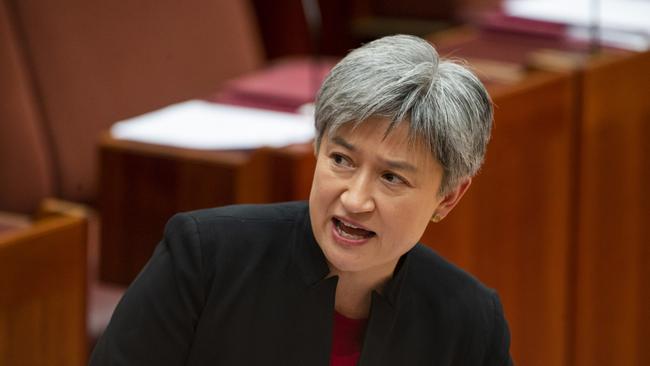
“But if you look under the hood of the modern ALP, things have changed dramatically – supporters of the US alliance far outnumber alliance sceptics; many unions see China as a job destroyer; and the traditional social conservatives in the party, many of them Catholics, are turned off by the religious crackdowns and, previously, the one-child policy. Add those constituencies up – and throw in China’s trade sanctions and human rights abuses – and we are a long way from the Hawke-Keating era.”
Says Blaxland: “This is not the Labor Party of the 1970s. It’s not Gough’s Labor Party and it’s not Keating’s Labor Party. This is a very different Labor Party today.
“The people in Labor who are now in decision-making positions on foreign affairs and defence are level-headed, practical people. They are not ideologues and they do not have an anti-American or even an anti-China bent to them.”
Another sign of Labor’s willingness to challenge Beijing was its decision to back the government’s move to create the three-nation AUKUS pact to acquire a nuclear-powered submarine fleet in the face of China’s naval expansion.
Any decision not to back AUKUS would have left Labor vulnerable to Coalition claims that it was weak on national security. But Labor’s decision to back Australia acquiring nuclear-powered submarines is also an evolution on national security for a party which for decades was allergic to anything nuclear.
“The willingness to consider nuclear-powered submarines was new for Labor,” says Gyngell.
“We can all remember a time when that would have been a very far-fetched thing.”
In her role as foreign affairs spokeswoman, Wong has been crucial in steering the Labor Party to the right on China and on other national security issues, and making it harder for the Morrison government to exploit Labor’s policies for political gain.
In taking the positions that she has on China, AUKUS and other foreign policy issues, Wong – a member of the Labor Left – has challenged the views of many in her own faction.
For example, Wong has frequently condemned the anti-Israel sentiment which arises regularly among the Labor Left at a state level. She has insisted that all parties involved in the Israeli-Palestinian conflict – including Palestinians – need to be accountable for their behaviour.
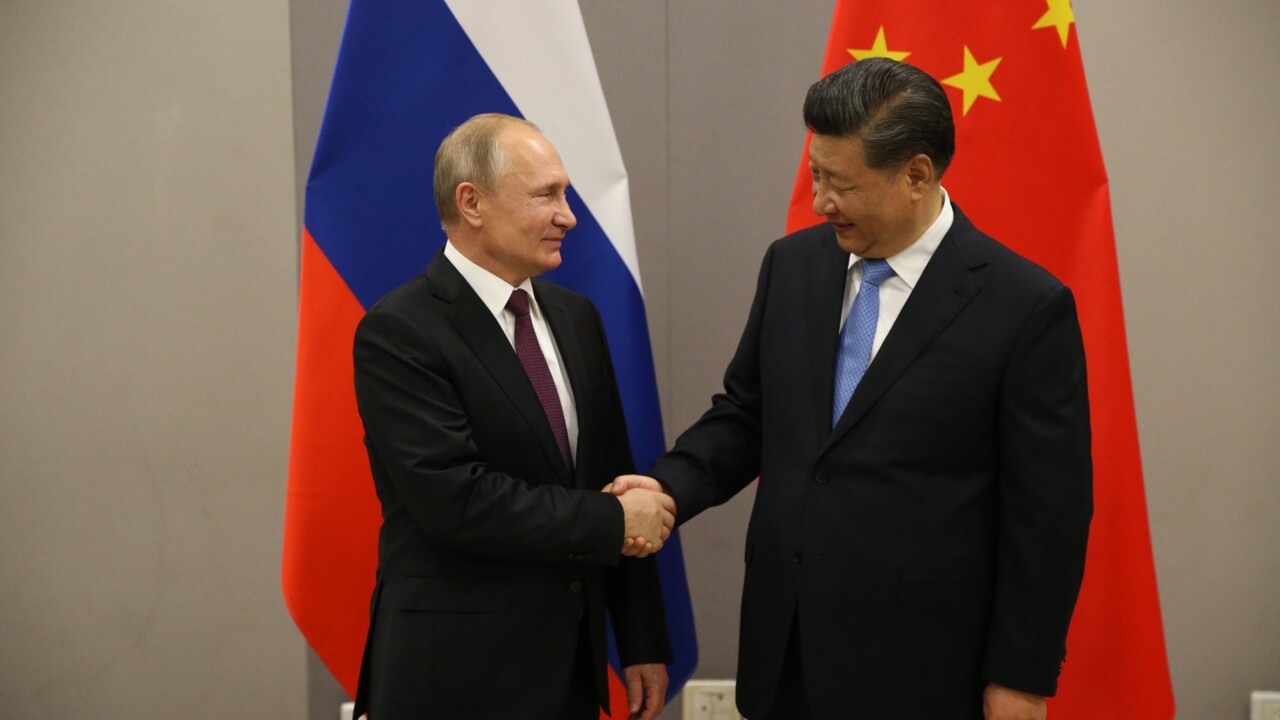
Viewing the conflict from one perspective only “will not advance the cause of peace”, she says.
“It will take leaders recognising their respective roles in the cycle of escalation and conflict – and returning to meaningful dialogue and negotiation – for a just and enduring peace to be achieved,” Wong says.
Keating doesn’t like Wong’s small-target strategy, accusing her of opting for a “reasonably quiet political life” by effectively taking the position that “there shouldn’t be an ounce of daylight between her and the Liberal Party” on foreign policy.
But the reality is that very little daylight between Labor and the Coalition on China, AUKUS, Israel and other foreign policy and national security issues makes it difficult for the Morrison government to portray Labor as reckless or weak on national security.
This doesn’t mean that the government won’t try its hardest to persuade voters that Labor is a risky bet. Morrison’s strategy may be to simply accuse Labor repeatedly of being soft on China in the hope that voters will eventually believe him.
But Albanese and Wong have worked assiduously to minimise the traditional advantage that incumbent Coalition governments have on national security.
That might mean nothing if Australia experiences another Tampa-style national security shock in the coming months or if conflict erupts in the Ukraine. That sort of global instability almost always works in favour of an incumbent government.
“I think national security will feature more than in past election campaigns but I think domestic politics will still be more prominent,” says Blaxland.
“But that could change if this gets worse in Ukraine, or if China ratchets things up over Taiwan, or North Korea ratchets things up on the peninsula.”
But Blaxland says that barring an unexpected global crisis, Labor’s small-target strategy on China and national security will frustrate the government during the campaign.
“It will be to the chagrin of the government because Labor are not being the ideologues they are supposed to be,” he says. “That is now the domain of the Greens.”


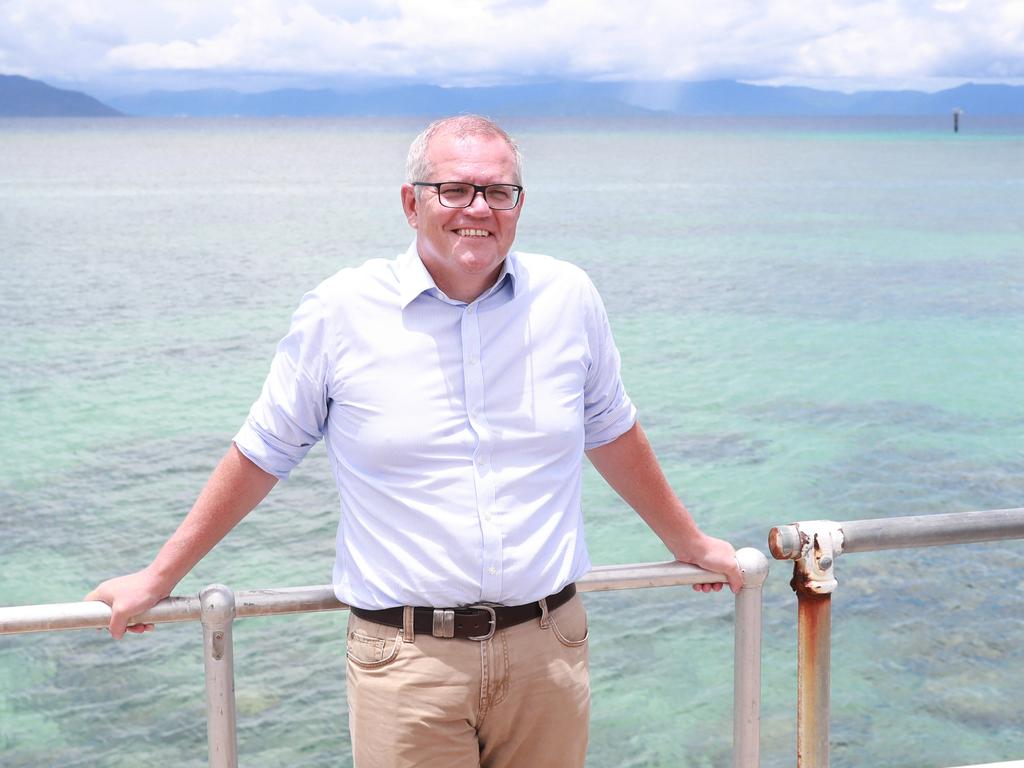
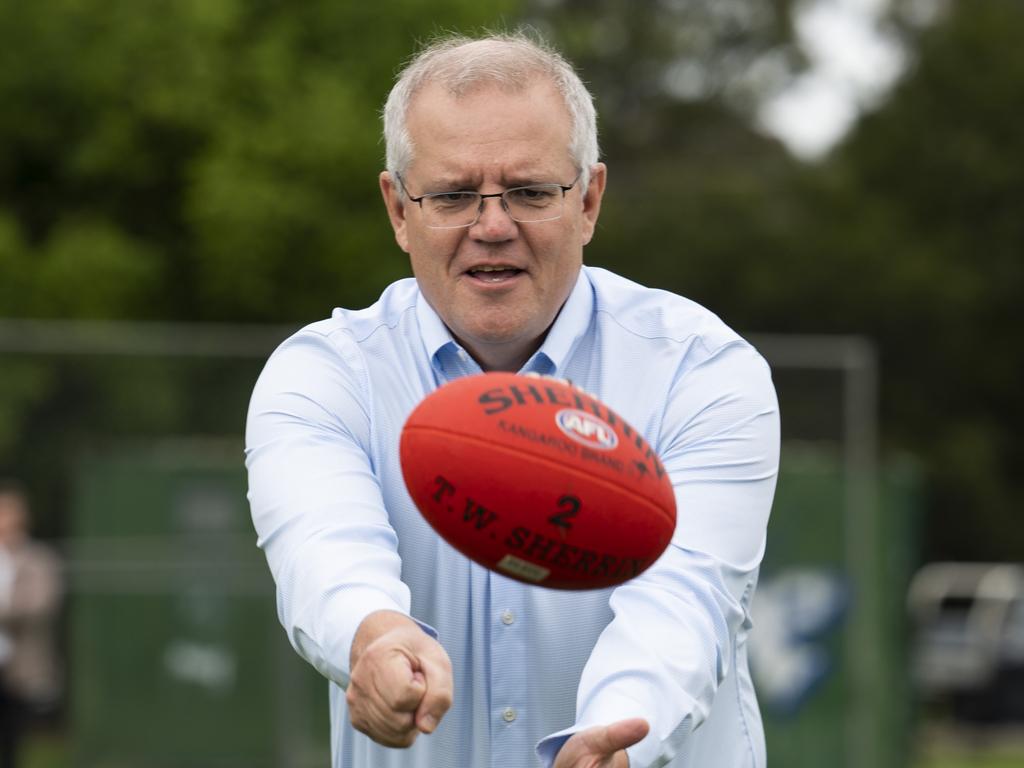
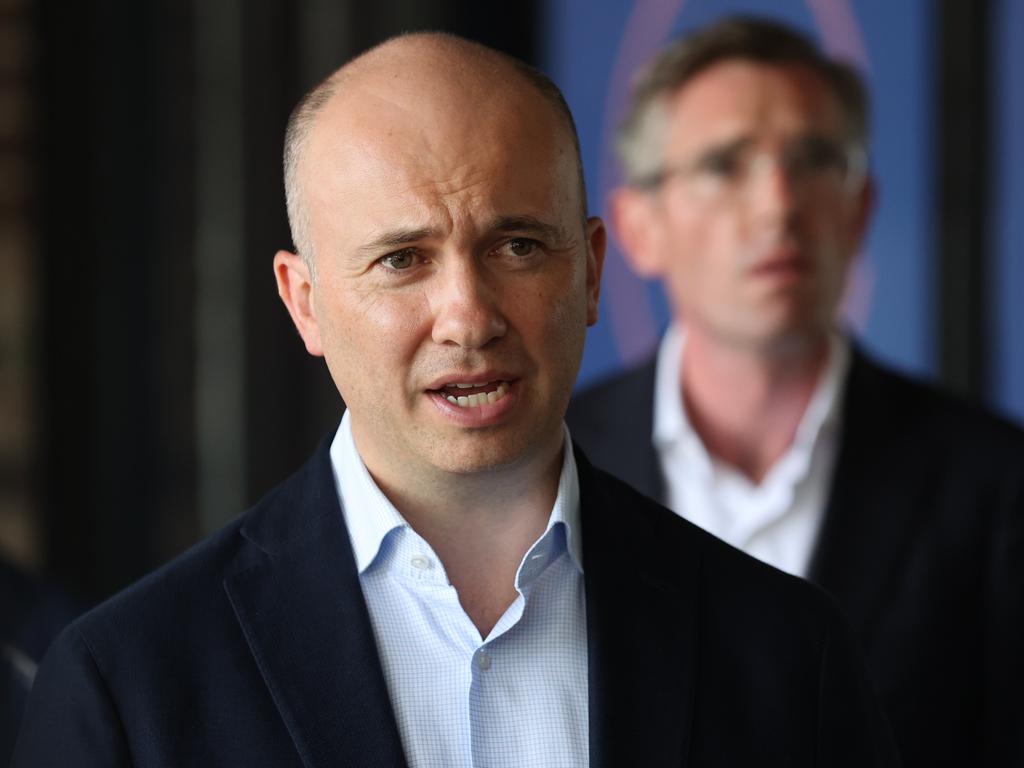
As the election season gets into full swing, the Coalition is preparing to launch a relentless attack on Labor’s credentials on China and national security.